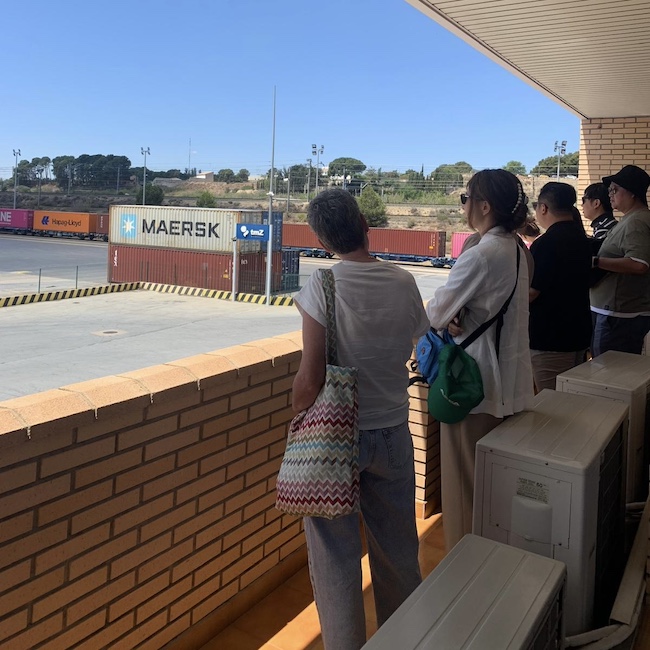.png.transform/rendition-xs/image_image%20(1).png)
Six South Korean Dairy Sector Professionals Visit Spain for Special Trade Mission
The participants traveled throughout Spain to see firsthand how Spanish companies produce forage and understand why it’s a superior product
A trade mission was organized by ICEX/FWS and AEFA (the Spanish Manufacturers Association of Dehydrated Alfalfa) to bring South Korean professionals in the industry to Spain to see firsthand how Spanish forage producers operate, the superior quality of Spain’s products, the advantages of dehydration in terms of traceability and food safety. The methods used in Spain yield forage that is homogenous in terms of quality as well as and free of toxic substances and, therefore, healthy and safe for South Korean animals.
Ultimately, the goal is to educate participants about the industry in Spain and show them the various phases of alfalfa production, the dehydration process, how to use dehydrated forage, and the differences between dehydrated and sundried forage, among other topics.
Mission Participants
There were six participants, all of them from South Korea, and from the following companies and organizations: Great AG Corporation, which is involved in farming and animal food manufacturing; Hanong Co. Ltd., which makes feed additives; the Korea Feed Ingredients Association, KFEEDIA; the Korea Dairy and Beef Farmers’ Association; Seoul Dairy, a milk co-op that distributes alfalfa to local farms; and Nonghyup Feed Inc., a forage business.

The Mission’s Itinerary
The group arrived in Spain on June 23rd and headed directly to Zaragoza to begin their trip. The following day they visited the facilities at Alfalfas Hermanos Márquez, followed by, later in the day, a tour of Agroindustrial Pascual Sanz.
The following day, the participants headed about an hour northeast to the Los Monegros area to learn more from Forrajes San Agustín as well as Inamosa in the morning and Cooperativa Los Monegros in the afternoon.
On Wednesday, they traveled to the Cinco Villas area, around an hour north of Zaragoza to visit the facilities of three more fodder producers: Liverco, Indasa, and SAT Ansó.
The next day they headed to Huesca and Lérida, where they took a tour and learned more about Nafosa and also Venso in the morning and then Iberalfa after lunch.
The morning after, they traveled to Catalonia to meet up with and learn more about local companies Forrajes San Mateo and Al Dahra, and they also enjoyed a meal and a tour of the Centro Alimentario Guissona BonArea. This was their last outing, and afterwards they headed to the airport in Barcelona to travel home.
During the participants’ visits, they were about to see the companies’ dehydrating and pellet production facilities, food production centers, logistics hubs, and alfalfa, fescue, oat and other forage farms.
South Korea’s increasing demand for alfalfa
South Korea has seen its dairy industry grow exponentially in recent years, which has given rise to an increasing need for forage such as alfalfa. As a result, it has become a major importer to keep up with demand.
In 2023, the country imported over 1 million tons of bales of forage and more than 22k tons of alfalfa pellets. Spain is a leader in pellet production, not to mention oats and fescue, and is South Korea’s primary supplier.
